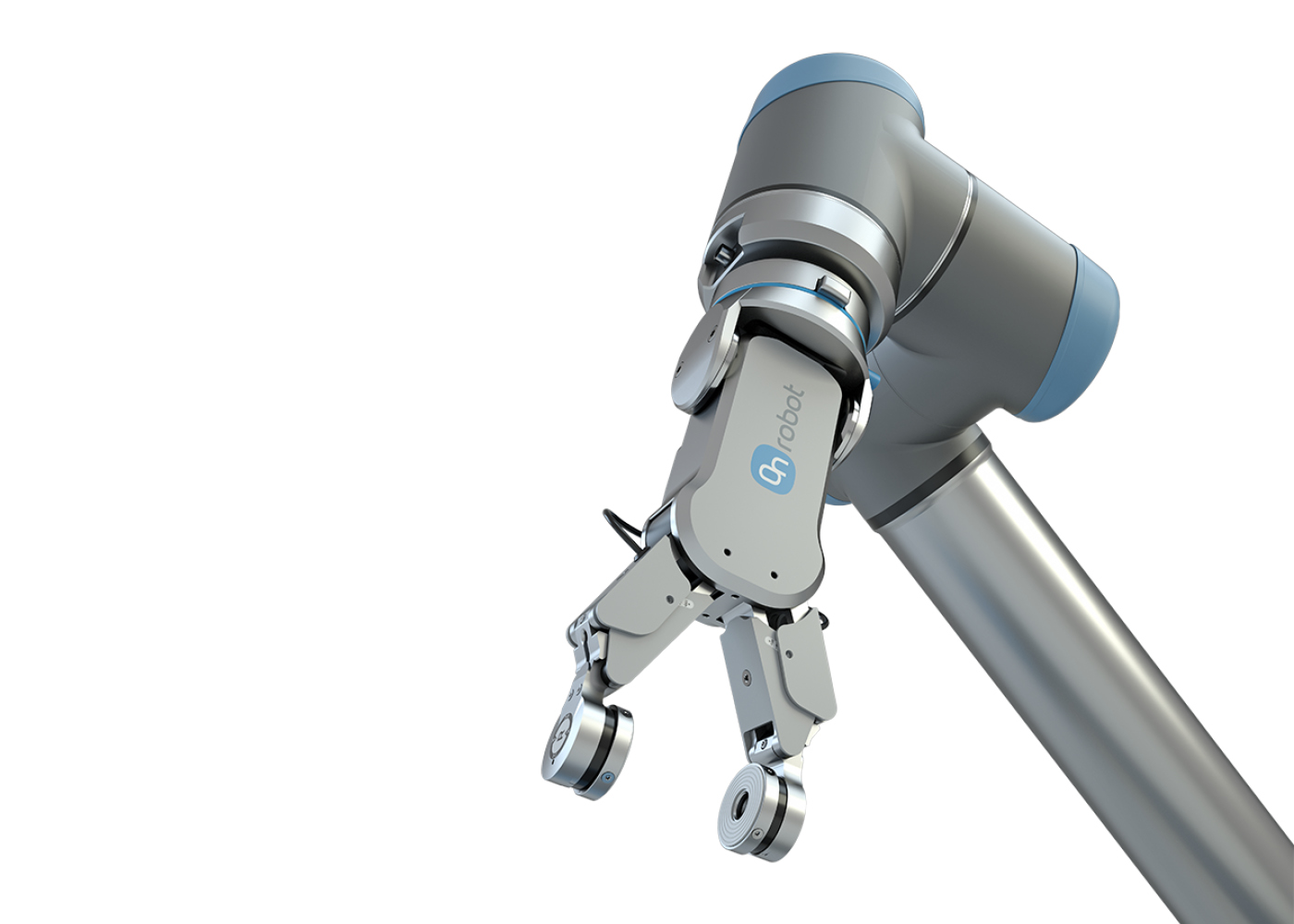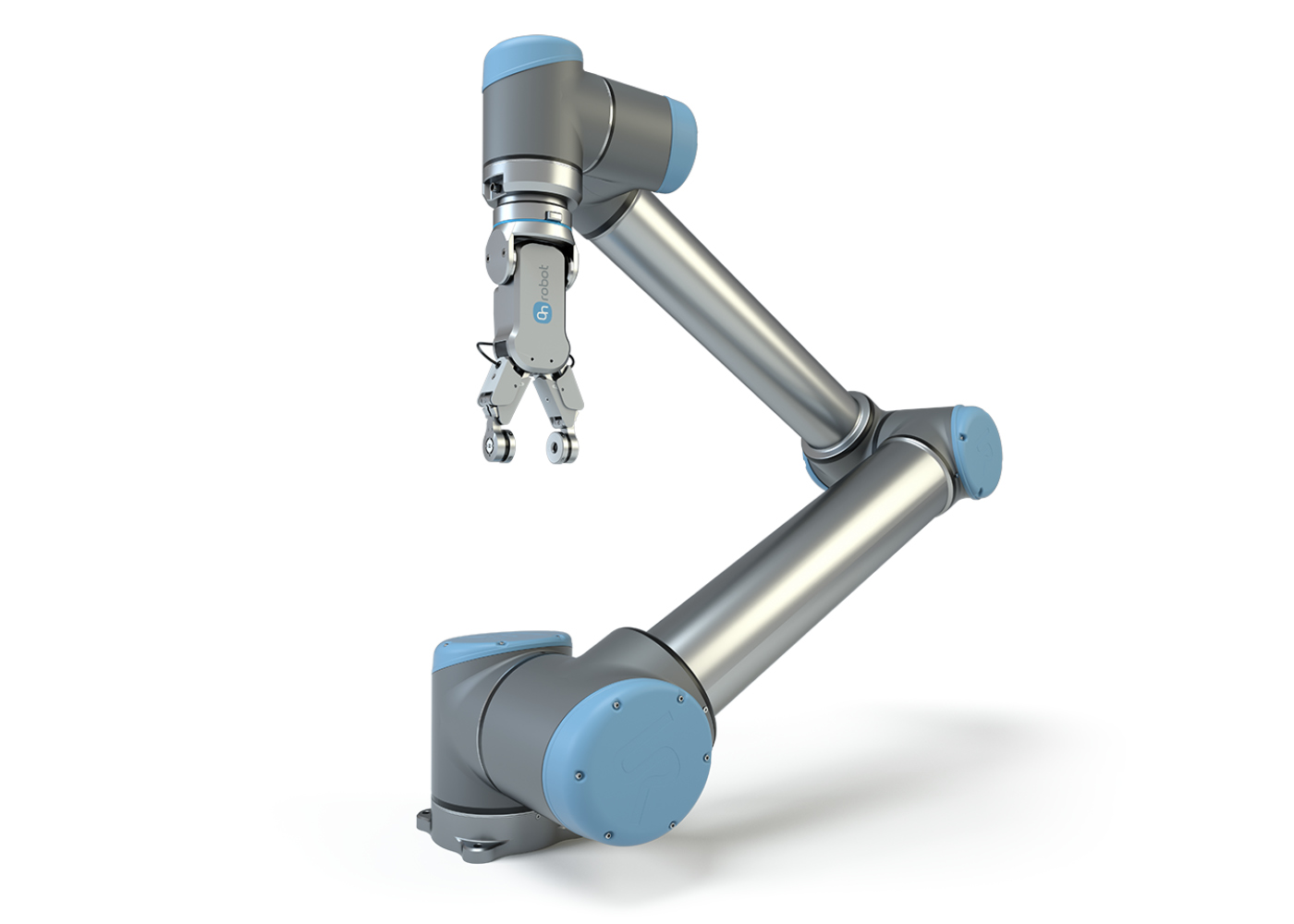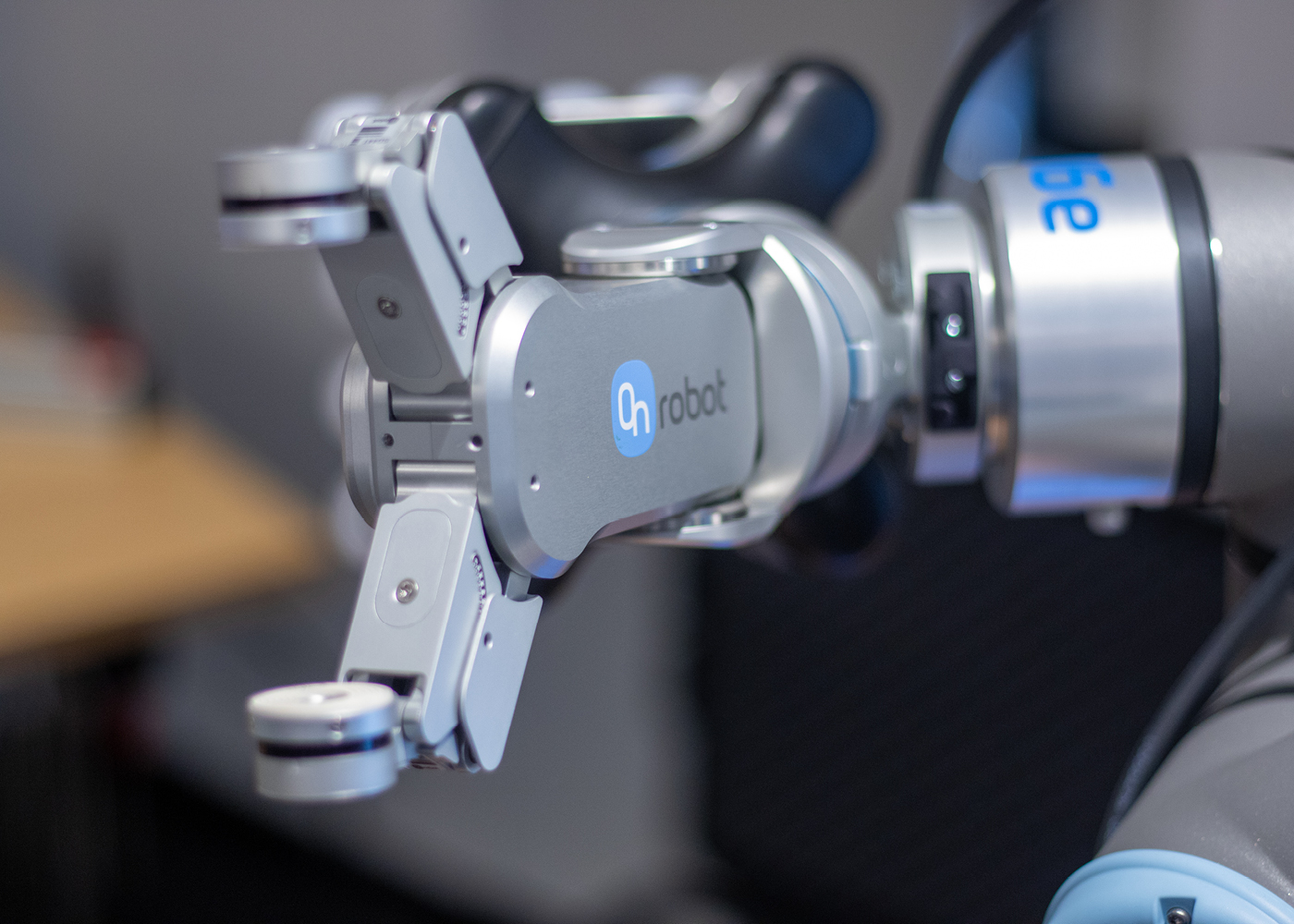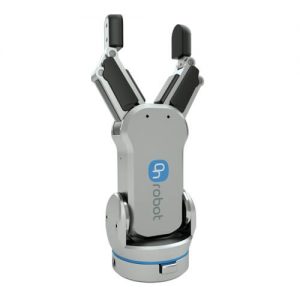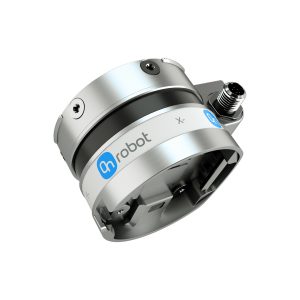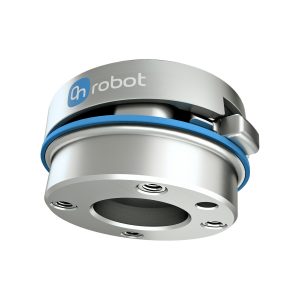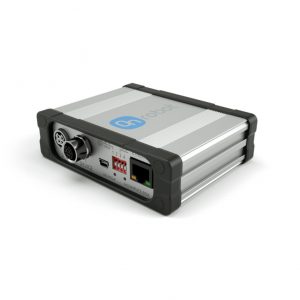RG2-FT Smart gripper
Smart robot gripper with in-built force/torque and proximity sensor
The RG2-FT is a state-of-the-art gripper with added sensing and intelligence. It has built-in force/torque and proximity sensor providing very precise automation. This enables true collaboration with human operators, supporting them like a co-worker would. Insertion processes can be achieved faster and more precise. This gripper can easily insert pins for instance, where humans would struggle. Due to the advanced sensor technology, during assembly the gripper gives the robot the ability to feel when the part has been mounted correctly. RG2-FT offers high productivity, fast deployment saving engineering hours on integration.
7,540.00€
Customizable fingertips
The gripper can handle objects of various size and shape.
Detects workpiece
The RG2-FT can accurately detect the position of objects. It detects the risk of slipping before it happens, improving production quality with accurate sensing.
Grip indications
Detects risk of slipping before it happens.
Ideal for fragile material handling
Due to the sensitive gripping, this gripper is ideal for handling fragile materials.
Sophisticated techology
The world’s first robot gripper that can detect objects using built-in force/torque and proximity sensors to ensure ultra-secure handling.
Integrated software
The gripper comes with pre-integrated software that is easy to install and program, so even employees with no technical background can set it up.
OnRobot RG2-FT Gripper
RG2-FT – the first gripper in the world with built-in intelligence and sensing ability. A state-of-the-art technology for collaborative applications.
Applications
Quality testing & Inspection
Assembly
Pick & Place
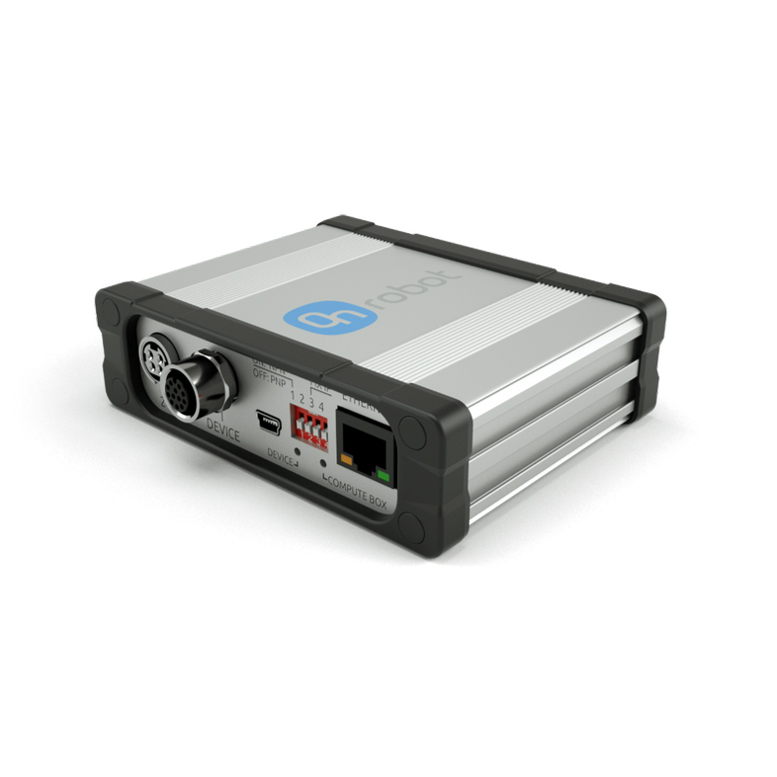
Robot kit
Essential accessories to make onRobot gripper work with other then UR robots.
615.00€
Compatible robots
Doosan
Fanuc
Hanwha
Kawasaki robotics
KUKA
Nachi
TM Robot
Universal Robots
Yaskawa
Features
Automatic depth compensation
Robot arm moves while fingers stay at the same relative position from object. This feature dramatically simplify programming and avoids time extensive workaround.
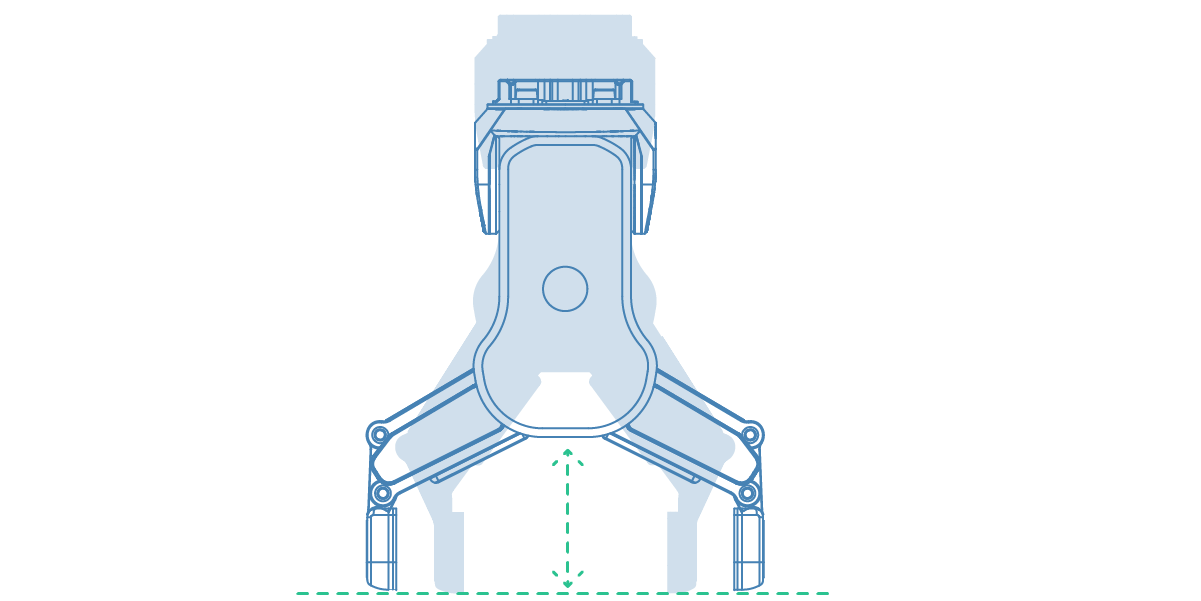
Easy deployment
Easy deployment with out-of-the box grippers reduces programming time by 70%.
Plug & Produce
Plug & Produce design reduces deployment time from a day to an hour.
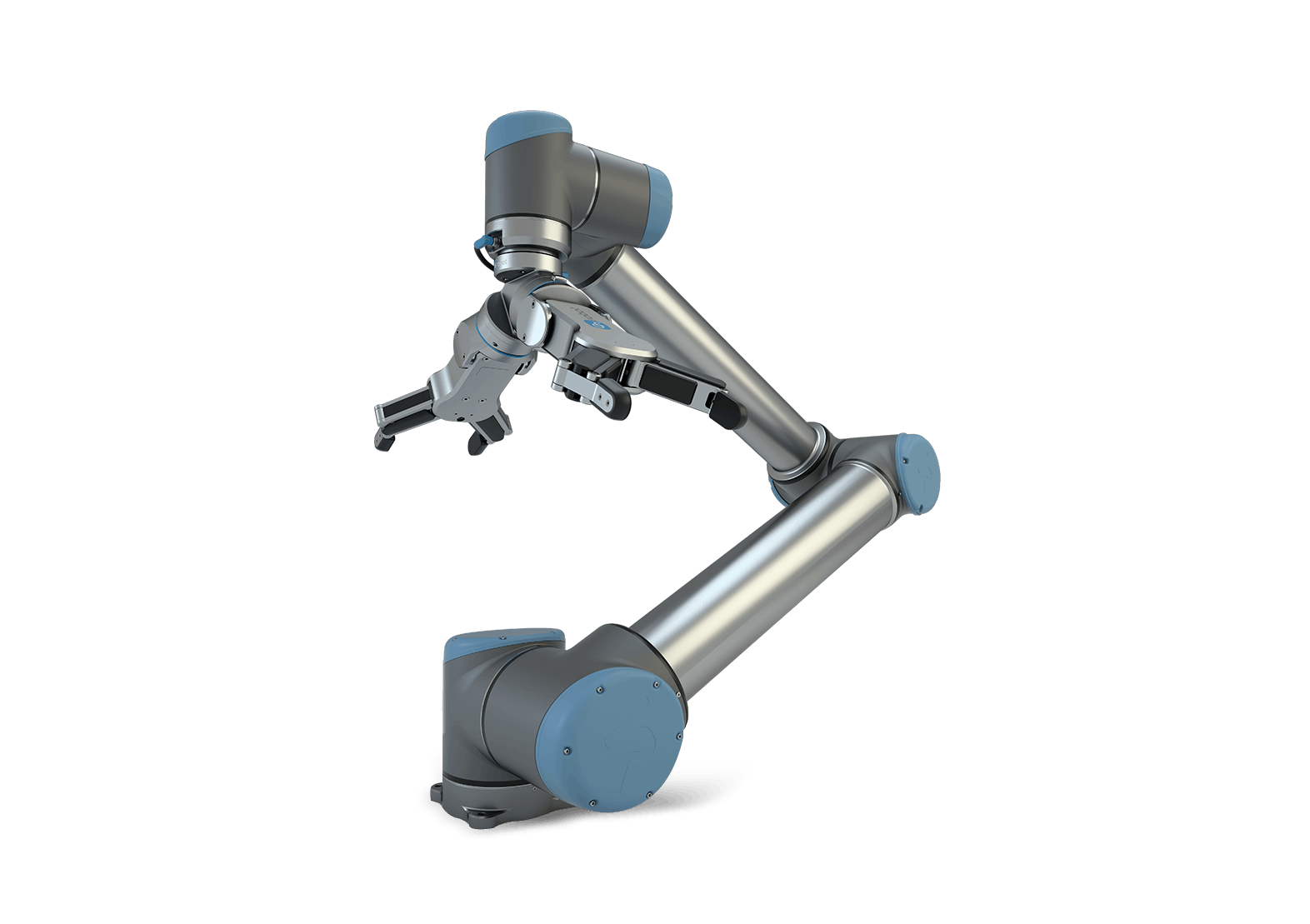
Technical specification
General Properties
IP Classification
IP54
Motor
Integrated, electric BLDC
Adjustable bracket tilting accuracy
typical < 1 °
Gripping time
minimun 0.04 maximum 0.11 typical 0.07 s
Gripping speed
minimun 55 maximum 184 typical 110 mm/s
Gripping force (adjustable)
minimun 3 maximum 40 N
Reversing backlash
minimun 0.2 maximum 0.6 typical 0.4 mm
Repetition accuracy
maximum 0.2 typical 0.1 mm
Finger position resolution
typical 0.1 mm
Total stroke (adjustable)
maximum 100 mm
Payload Form Fit
maximum 4 kg
Payload Force Fit
maximum 2 kg
Proximity Sensor Properties
Non-linearity
typical 12 %
Precision
typical 2 mm
Sensing range
maximum 100 mm
Logistic data
Dimensions
219 x 149 x 49 mm
Product weight
0.98 kg
Operating Conditions
Power consumption
minimun 6.5 maximum 22 W
Power requirement (PELV)
minimun 24 maximum 24 V
Calculated MTBF (operating life)
minimun 30.000 Hours
Relative humidity (non-condensing)
maximum 95 %
Operating temperature
maximum 55 °C
Storage temperature
maximum 60 °C
Ambient operating temperature
minimun 5 maximum 50 °C
Downloads
Related posts
view all blogpostsThe power and importance of unique sensing technologies
Sensing technologies enable force control, equipping the robot to place and fit objects precisely.
Bringing automation barriers down with advantageous end-of-arm tooling
With end-of-arm tooling, automation becomes more inclusive, enabling collaborative applications to meet modern automation needs.
Intelligent end-of-arm tools to shape a smart manufacturing ...
With EOAT, machines will become more compact, smart and self-contained to efficiently run collaborative applications, which makes automation easier and more affordable for businesses.
How sensors and software make smart robots: intelligent ...
In order to grant competitive advantages, industrial robots must become sensitive and smart.


